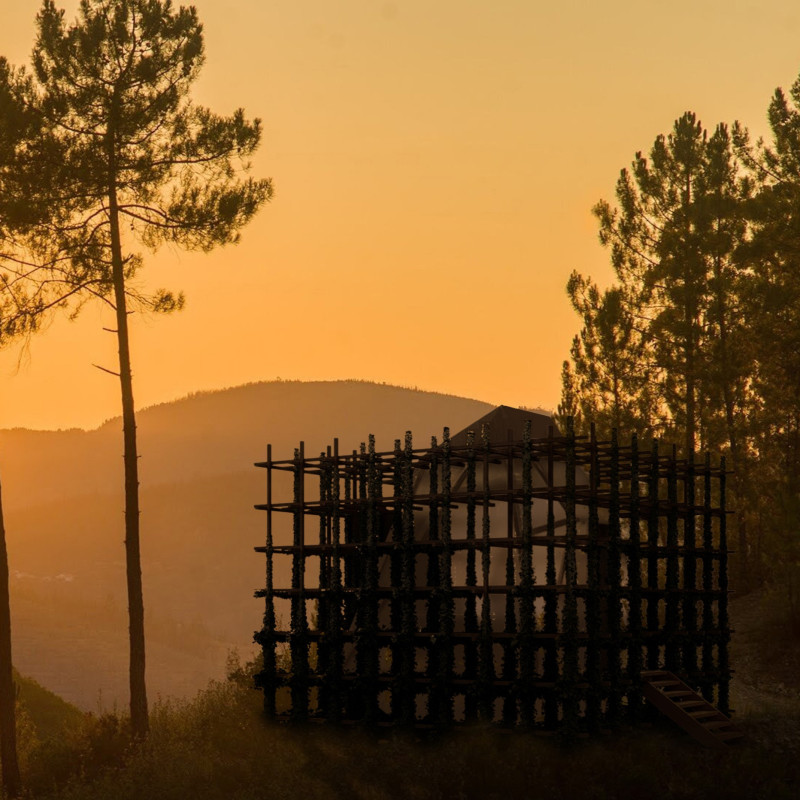5 key facts about this project
The Vale de Moses Meditation Cabin is located in an ancient valley, providing a quiet space for meditation and reflection. The design focuses on a strong connection to the natural surroundings, creating an environment that encourages calmness and introspection. The cabin's form is carefully designed to match human scale, avoiding unnecessary bulk, which helps it blend into the landscape. This thoughtful approach promotes a feeling of belonging, inviting occupants to engage with nature.
Concept and Design Philosophy
The design is based on the idea of harmony with nature. The cabin features layers, with a translucent inner envelope that wraps around therapy spaces, maintaining privacy while connecting with the outside. The outer layer is permeable, enabling interaction with the environment. This design shows how architecture can adapt to the seasons, fostering a lasting relationship with the natural world.
Materials and Sustainability
Material choices are essential to the cabin's design, ensuring sustainability and minimal environmental impact. Polycarbonate panels serve as the main material, offering lightness, thermal insulation, and sound protection. Pine wood is used for structural elements, contributing to a natural look while providing strength. These materials work together to create a construction that is both functional and environmentally friendly.
Energy Efficiency and Systems
The cabin employs various energy solutions that align with modern sustainability practices. Photovoltaic glass is incorporated to generate energy without obstructing views of the landscape. A water collection system is also included, allowing for practical use and irrigation. These features emphasize the focus on eco-friendly design.
Light filters through the polycarbonate walls, creating soft shadows and patterns inside. This play of light enhances the meditative experience, connecting the interior with the outside world. The changing sunlight transforms the space, inviting reflection and a deeper sense of peace.





















































